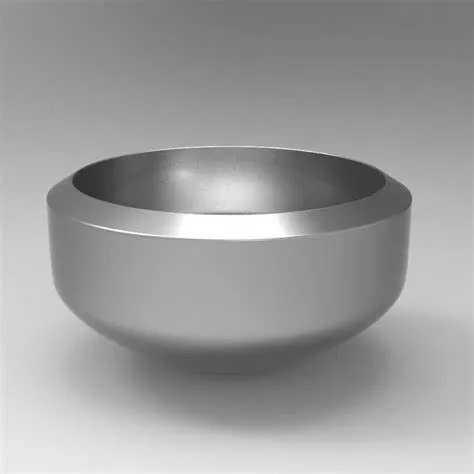-
Cangzhou Yulong Steel Co., Ltd.
-
Phone:
+86 13303177267 -
Email:
admin@ylsteelfittings.com
- English
- Arabic
- Italian
- Spanish
- Portuguese
- German
- kazakh
- Persian
- Greek
- French
- Russian
- Polish
- Thai
- Indonesian
- Vietnamese
- Zulu
- Korean
- Uzbek
- Hindi
- Serbian
- Malay
- Ukrainian
- Gujarati
- Haitian Creole
- hausa
- hawaiian
- Hebrew
- Miao
- Hungarian
- Icelandic
- igbo
- irish
- Japanese
- Javanese
- Kannada
- Khmer
- Rwandese
- Afrikaans
- Albanian
- Amharic
- Armenian
- Azerbaijani
- Basque
- Belarusian
- Bengali
- Bosnian
- Bulgarian
- Catalan
- Cebuano
- China
- China (Taiwan)
- Corsican
- Croatian
- Czech
- Danish
- Esperanto
- Estonian
- Finnish
- Frisian
- Galician
- Georgian
- Kurdish
- Kyrgyz
- Lao
- Latin
- Latvian
- Lithuanian
- Luxembourgish
- Macedonian
- Malgashi
- Malayalam
- Maltese
- Maori
- Marathi
- Mongolian
- Myanmar
- Nepali
- Norwegian
- Norwegian
- Occitan
- Pashto
- Dutch
- Punjabi
- Romanian
- Samoan
- Scottish Gaelic
- Sesotho
- Shona
- Sindhi
- Sinhala
- Slovak
- Slovenian
- Somali
- Sundanese
- Swahili
- Swedish
- Tagalog
- Tajik
- Tamil
- Tatar
- Telugu
- Turkish
- Turkmen
- Urdu
- Uighur
- Welsh
- Bantu
- Yiddish
- Yoruba

Jul . 23, 2024 14:41 Back to list
Exploring the Versatility and Applications of Pipe Caps in Modern Industry and Construction
The Significance of Pipe Caps in Industrial Applications
In the vast world of industrial manufacturing and plumbing, the importance of small components often gets overshadowed by larger machines and systems. Among these essential yet often overlooked items are pipe caps. A pipe cap is a fitting used to close the end of a pipe, providing both a seal and structural integrity. While they may appear to be simple, their role in various applications cannot be underestimated.
Understanding Pipe Caps
Pipe caps are typically made of materials such as steel, plastic, or brass, depending on the specific requirements of the pipeline system. They come in various shapes and sizes to fit different pipe diameters and types. The most commonly used pipe caps are threaded caps, welded caps, and socket-type caps. Each type serves a distinct purpose based on the nature of the project and the conditions it must withstand.
Applications in Various Industries
1. Oil and Gas Industry One of the primary applications of pipe caps is in the oil and gas sector. Pipelines transporting oil, gas, or other hazardous materials require secure caps to prevent leaks and ensure safety. These caps protect the ends of the pipelines during transportation and storage, safeguarding them from contamination and external damage.
2
. Water and Sewerage Systems In municipal water and sewage systems, pipe caps play a crucial role in maintenance and repair operations. When a section of the pipeline needs to be serviced, caps can be used to seal off the area, allowing for safe and efficient work. This prevents backflow and contamination, ensuring the safety of the water supply.pipe cap

3. Construction In the construction industry, pipe caps are used to close off temporary pipe installations until they are needed. This practice not only maintains the system’s integrity but also minimizes the risk of accidental damage or injury.
4. Manufacturing In manufacturing plants, pipe caps are often employed in systems that transport liquids, gases, or vapors. Caps help maintain pressure within the system, preventing leaks that could lead to product loss or environmental hazards.
Benefits of Using Pipe Caps
One of the primary benefits of pipe caps is their ability to enhance safety. By effectively sealing pipes, they prevent potential leaks which could lead to hazardous spills or accidents. This is especially vital in industries dealing with toxic or flammable materials.
Economically, using pipe caps can also save costs. By preventing leaks, companies reduce the risk of product loss and the associated financial implications. Moreover, proper capping can extend the lifespan of pipelines by protecting them from environmental factors that could cause wear and corrosion.
Conclusion
While they may seem minor in the grand scheme of industrial operations, pipe caps are indispensable components that contribute to the efficiency, safety, and sustainability of various pipeline systems. Their applications span multiple industries, from oil and gas to construction, where they ensure the proper functioning of critical infrastructure. As the world continues to innovate and prioritize safety in industrial practices, the significance of robust and reliable pipe caps will undoubtedly endure. Investing in high-quality pipe caps and ensuring their proper installation can lead to safer and more efficient operations, highlighting that even the smallest components can have a substantial impact.
Latest news
-
ANSI 150P SS304 SO FLANGE
NewsFeb.14,2025
-
ASTM A333GR6 STEEL PIPE
NewsJan.20,2025
-
ANSI B16.5 WELDING NECK FLANGE
NewsJan.15,2026
-
ANSI B16.5 SLIP-ON FLANGE
NewsApr.19,2024
-
SABS 1123 FLANGE
NewsJan.15,2025
-
DIN86044 PLATE FLANGE
NewsApr.19,2024
-
DIN2527 BLIND FLANGE
NewsApr.12,2024
-
JIS B2311 Butt-Welding Fittings LR/SR 45°/90° /180°Seamless/Weld
NewsApr.23,2024











